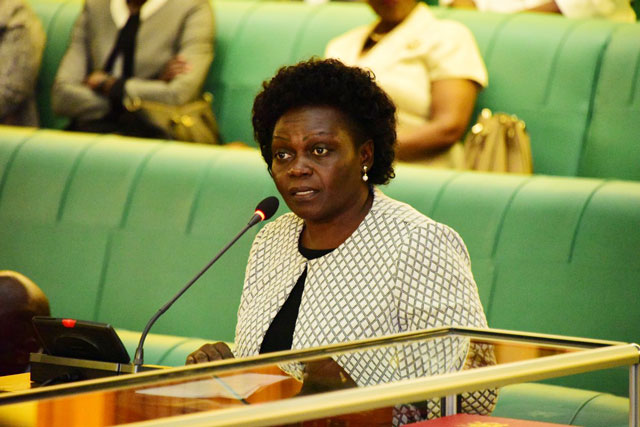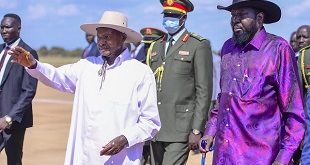
Kampala, Uganda | THE INDEPENDENT | Government is carrying out vaccinations of adults infected with Chronic Hepatitis B (CHB) majorly in the North and North Eastern regions, as efforts are made to extend the treatment to other regions of the country.
In a response to queries raised by Nakaseke South MP, Hon. Semakula Luttamaguzi on the prevalence of Hepatitis B in his constituency, the Minister of State for Health (General Duties), Hon. Sarah Opendi said that vaccines would be administered to affected persons in Nakaseke by July 2019.
Presenting the response during the plenary sitting on Tuesday, 15 January 2019, Opendi said that the programme had been successful in implementing the first dose of medicine in areas with high Hepatitis B prevalence in 2015.
“The Ministry began efforts to mitigate the spread of Hepatitis B. Interventions have been based on prevalence rates and we started with West Nile and Karamoja regions,” said Opendi.
She told MPs that the vaccination process was being carried out in four phases to span a period of four years with the first two phases already complete, 67 out of the 127 districts in the country already covered, accounting for 54 per cent of progress.
“Phase three and four will cover the remaining 58 districts of Uganda. Nakaseke district will be catered for in phase three of this programme which will commence in July this year,” Opendi added.
The minister, however, expressed discontent with the non-committal of Ugandans to the treatment, which she said had prolonged the mitigation process of the Hepatitis B condition thus delaying extension of the treatment to other districts in the country.
She said that it had taken long to carry out the activities in the five sub-regions of the country, adding that by September 2019, the two-year mark would have been reached. She however, said that there was a poor response to subsequent medication by affected persons.
“There is always a high turn up of persons who want to receive the first dose of vaccination for Hepatitis B, but the numbers are always low on the second and third doses which are equally important,” Opendi said.
Luttamaguzi, however, asked why residents of Nakaseke and other Ugandans would have to wait for six months before they get treatment for Hepatitis B, yet their lives were at risk.
“Why should we wait till July yet many people are dying of Hepatitis B? This matter is urgent and does not require laxity by the Ministry of Health,” said Luttamaguzi.
*****
SOURCE: Uganda Parliament
 The Independent Uganda: You get the Truth we Pay the Price
The Independent Uganda: You get the Truth we Pay the Price



